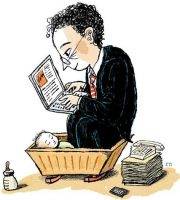September 5, 2016
Mothers with young children a third less likely to be in work than fathers 0
 The growing body of evidence highlighting the challenges faced by working mothers has been broadened with the publication of a new report from the TUC which claims that mothers with young children are a third less likely to be in work than fathers. The TUC found that on average just 64 percent of mothers with children aged 0-4 are in paid work, compared to 93 percent of fathers. The analysis claims that the age of a woman’s youngest child has an influence on whether or not she works. The employment rate for mums increases by 11 percent to 75 percent for women with children at primary school (aged 5-10) and by 17 percent to 81 percent for mothers with secondary school age children (11+). For dads of pre-school children, employment rates are above 90 percent. This suggests that mothers’ work decisions are affected by regional variations in the availability and cost of childcare, transport and housing, and access to good quality flexible and part-time jobs.
The growing body of evidence highlighting the challenges faced by working mothers has been broadened with the publication of a new report from the TUC which claims that mothers with young children are a third less likely to be in work than fathers. The TUC found that on average just 64 percent of mothers with children aged 0-4 are in paid work, compared to 93 percent of fathers. The analysis claims that the age of a woman’s youngest child has an influence on whether or not she works. The employment rate for mums increases by 11 percent to 75 percent for women with children at primary school (aged 5-10) and by 17 percent to 81 percent for mothers with secondary school age children (11+). For dads of pre-school children, employment rates are above 90 percent. This suggests that mothers’ work decisions are affected by regional variations in the availability and cost of childcare, transport and housing, and access to good quality flexible and part-time jobs.




































August 31, 2016
Addressing the five negative influences on organisational culture 0
by Matias Rodsevich • Comment, Flexible working, Knowledge, Workplace
More →